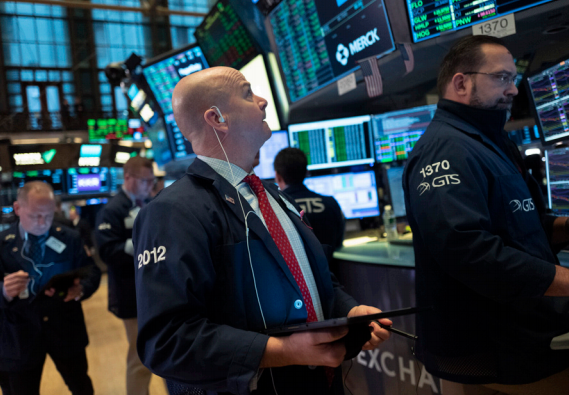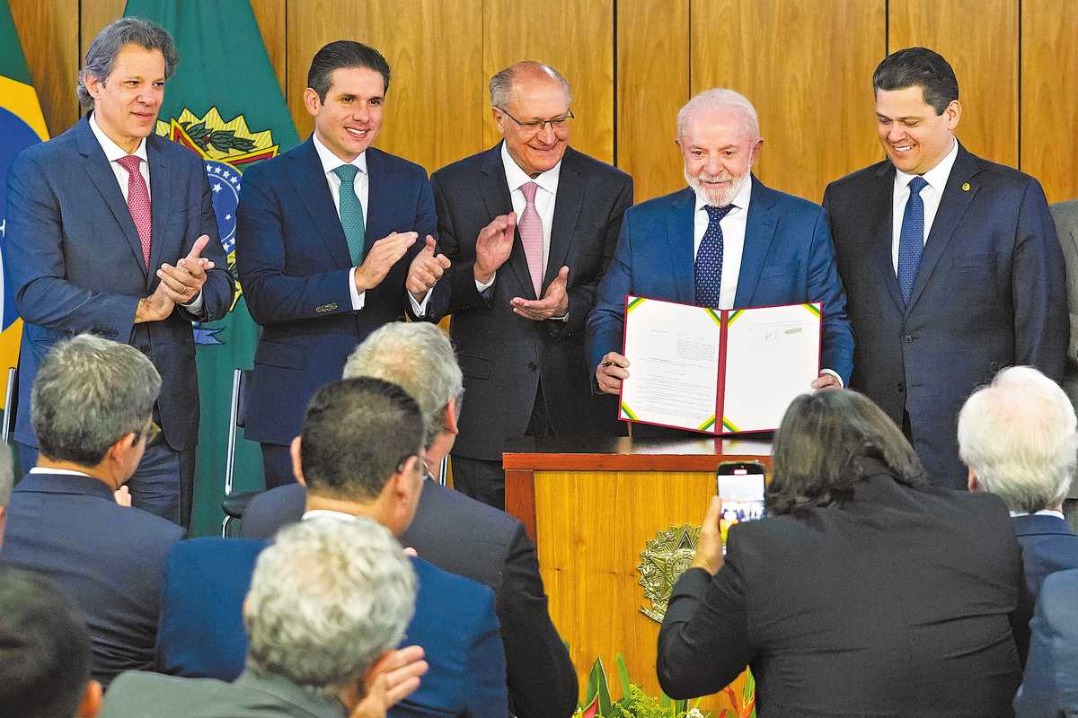Market surges on Trump's 'national emergency' declaration


US stocks overcame fits of volatility on Friday and surged nearly 2,000 points after President Donald Trump declared a national emergency, which could make up to $50 billion available to fight the spreading coronavirus.
The market closed on a positive note after one of the worse weeks in Wall Street's history.
It will take days, perhaps weeks, before investors know if the strong performance was the dead-cat bounce off market lows, the latest iteration of market volatility or the beginning of a turnaround.
The Dow Jones Industrial Average opened strongly and then pulled back, suggesting the market is still jittery one day after the blue chip index lost nearly 10 percent Thursday in the worst day since the market crash in 1987.
On Friday, the Dow rose 1,985.00 points, or 9.36 percent, and closed Friday at 23,185.62. The S&P 500 rose 230.38 points, or 9.29 percent, and closed at 2,711.02. The Nasdaq Composite advanced 673.07 points, or 9.35 percent, and closed at 7,874.88.
The Dow began the week at 24,272.14 and fell as low as 21,192.97, a plunge of 12.69 percent at its lowest on Thursday. The closed down nearly 10 percent that day.
The steep and extended market decline in the last few weeks destroyed trillions of dollars in market value. Investors turned to bonds as a safe haven, driving yields down to record lows.
On Friday, the yield on the benchmark 10-year US Treasury note edged up to 0.98 percent as the price fell. Bond yield and price move in opposite directions.
Apple shares rose Friday $29.74 a share, or 11.98 percent, to $277.97 a share after Wells Fargo upgraded the stock to overweight from equal weight, citing the stock's "compelling risk/reward" outlook.
Investors had punished the stock after Apple said it wouldn't meet earnings estimates due to coronavirus-induced supply chain disruption in China.
Oil is a proxy for future economy activity. Demand is down as many people have cut back on travel and airlines have cut flights. The price has plunged from $67.05 a barrel in January to $34.76, Friday's close for Brent crude, a worldwide benchmark. That's a decline of 48.16 percent.
On Thursday, the US Federal Reserve said it would inject about $1.5 trillion into short-term lending markets. The announcement boosted the market briefly, but shares soon continued to plunge Thursday.
House Speaker Nancy Pelosi, a California Democrat, said lawmakers and the White House are close to a bargain on the type and scope of economic relief to be offered in response to the coronavirus outbreak.
"We've resolved most of our differences," Pelosi told reports Thursday.
Senate Majority Leader Mitch McConnell, a Kentucky Republican, has vowed to keep the upper chamber in session if necessary to pass the bill and send it to US President Trump for his signature, making it law.
"I would advocate for pushing money into the hands of companies right now and into the hands of individuals and individual consumers because that is really the only thing that is going to help at this point," David Riedel, founder of Riedel Research Group, told CNBC.
"When they're ready to spend, then that V (shaped recovery) can take hold and things can start to recover quickly."

































